The Value of Place-Based Learning: Reflections on Aquaculture in Hawai‘i
29 March 2023Authors: Meghan Massaua, Ian Yue, Madelyn Smith
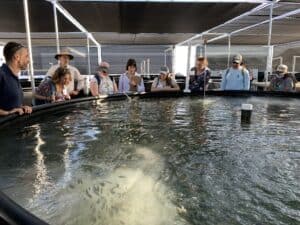
Over the last few years, federal legislators have introduced three bills that propose different paths forward for the U.S. marine aquaculture industry (i.e., the AQUAA Act, the SEAfood Act, and the Coastal Seaweed Farm Act). Each outlines a different approach for addressing obstacles in sustainable seafood production, prompting national debate around what the future of U.S. marine aquaculture will look like.
Since 2018, Meridian has engaged over 250 ocean stakeholders through interviews, workshops, and convenings to build shared understanding of stakeholder perspectives on aquaculture development and to ensure that ongoing federal aquaculture policy dialogues are inclusive of a broad range of stakeholder needs and concerns.
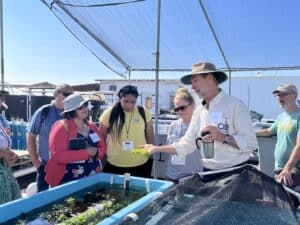
As we learned from our virtual multisectoral aquaculture design workshop last April, ocean stakeholders hold many common values, revealing prospects for sectors to approach challenges around domestic aquaculture development collaboratively. The workshop also made clear that local contexts are critically important for understanding regional history, dynamics, needs, and opportunities around aquaculture development.
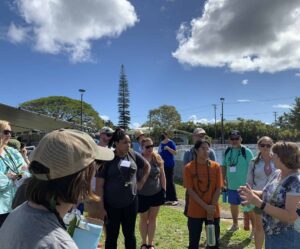
To deepen stakeholder knowledge on deep water marine aquaculture operations (and to explore aquaculture challenges and opportunities in a specific context), we organized an interactive site visit to Hawai‘i in January 2023. The four-day visit brought together 28 representatives from commercial and recreational fishing, environmental NGOs, and local aquaculture and community organizations. The group toured aquaculture research facilities and hatcheries, participated in hands-on restoration of a loko iʻa (traditional fishpond), and snorkeled around the Blue Ocean Mariculture offshore net pens. We also facilitated discussions for participants to reflect on their experience and how it impacts their future aquaculture engagement. What’s more, given the presence of both conventional and traditional Native Hawaiian aquaculture in the state, we were able to explore community values and intersections with diversity, equity, and inclusion — an increasingly important part of our aquaculture work.
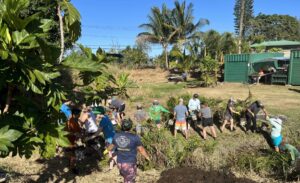
Based on our time on the Big Island, three big takeaways stood out:
- The power of experiential and place-based learning – Seeing firsthand how aquaculture operations can sensitively account for local conditions—including growing culturally important native species and conducting proactive community engagement—helped participants evolve their thinking on how aquaculture development can be “done right.” Participants also reflected that spending time learning from fishpond caretakers and helping with a loko iʻa restoration project strengthened their appreciation for the importance and tradition of aquaculture in the state. This feedback affirmed for us the power of on-the-ground learning in cultural context.
- A framework for sustainable aquaculture development – Due to the unique environmental and social conditions in Hawai‘i, successful aquaculture operations in Hawai‘i cannot be identically replicated elsewhere. However, participants identified a framework of strong “modeling, monitoring, and management” as a key learning from Blue Ocean Mariculture farm development that can inform how marine aquaculture can successfully operate elsewhere.
- Win-win opportunities for aquaculture industry and commercial fishing sectors – Areas of alignment emerged between sectors when participants reflected on their experiences together. For instance, participants across the commercial and recreational fishing sectors and aquaculture industry discussed the potential to create shared messaging that expands community connections to seafood, increases overall seafood consumption, and communicates how aquaculture fits into a vision for a sustainable U.S. seafood industry.
As we continue enhancing opportunities for collaborative solution-building around U.S. aquaculture, we are excited to apply these learnings to our future ocean sector engagement work.
To learn more about our takeaways from Hawai‘i, see our Learning Inventory and Discussion Highlights summary.
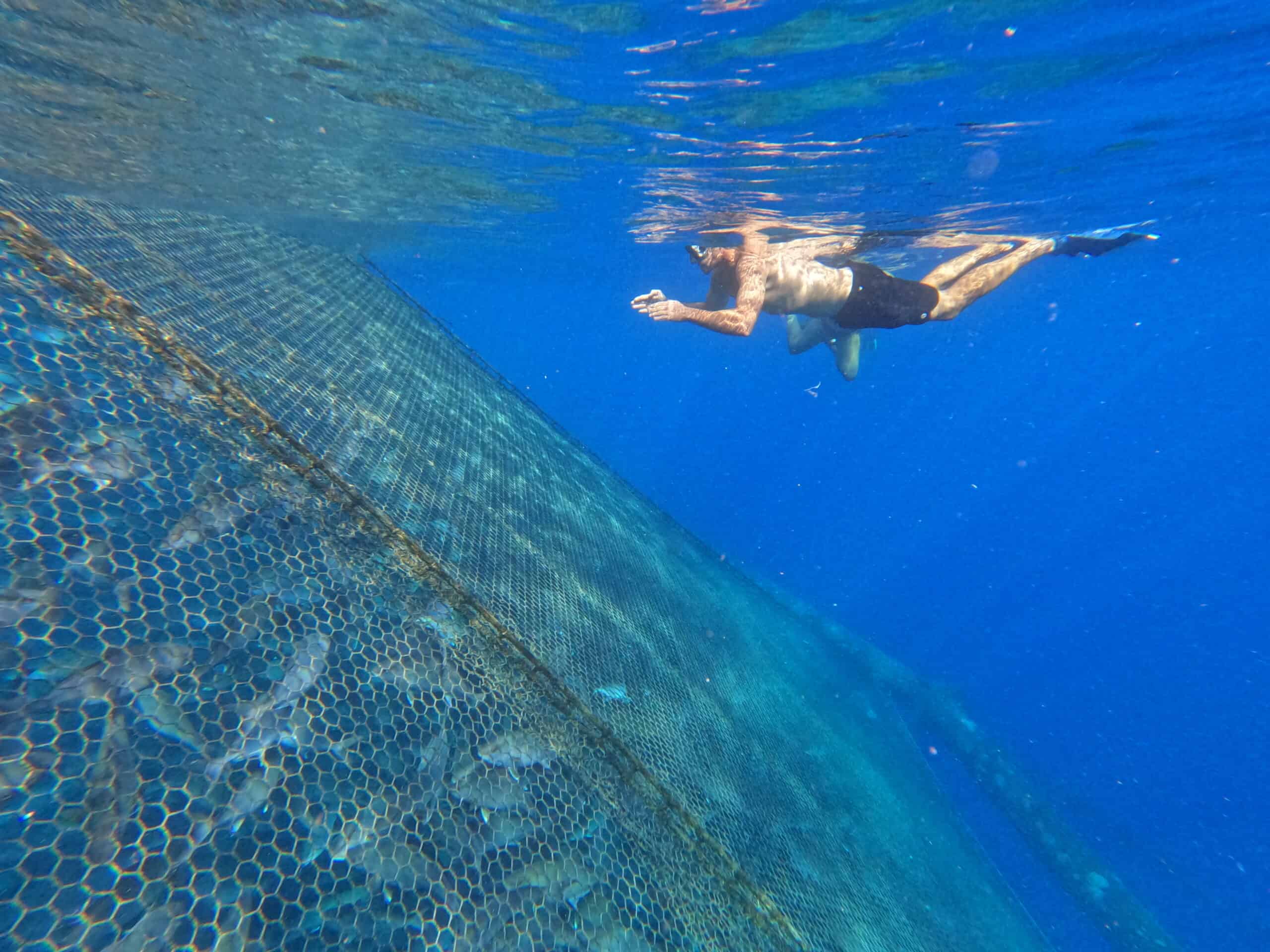
Hawai‘i Site Visit: Learning Inventory and Discussion Highlights
Read insights from site visit participant experiences on the Big Island.